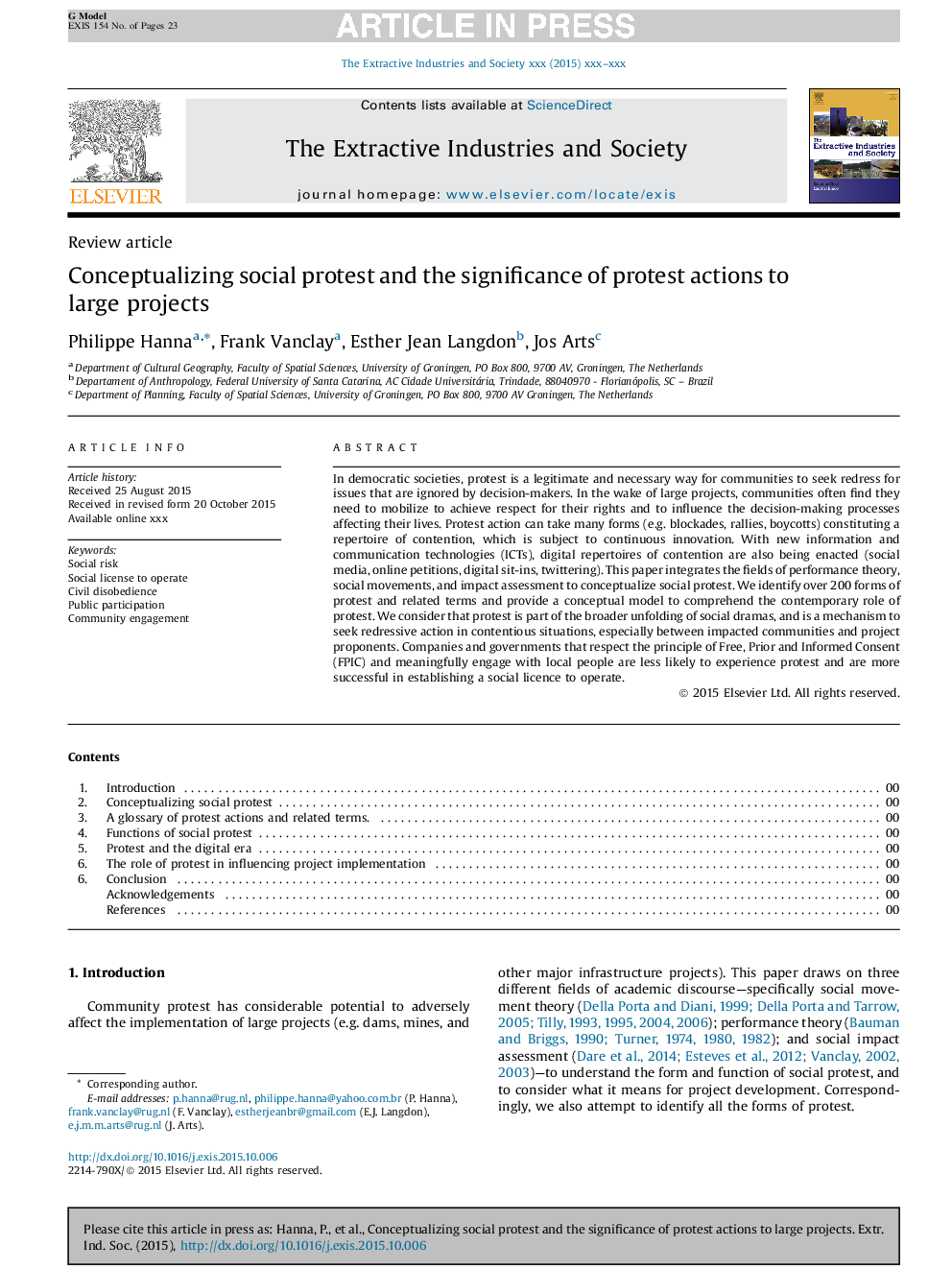| Article ID | Journal | Published Year | Pages | File Type |
|---|---|---|---|---|
| 10502213 | The Extractive Industries and Society | 2016 | 23 Pages |
Abstract
In democratic societies, protest is a legitimate and necessary way for communities to seek redress for issues that are ignored by decision-makers. In the wake of large projects, communities often find they need to mobilize to achieve respect for their rights and to influence the decision-making processes affecting their lives. Protest action can take many forms (e.g. blockades, rallies, boycotts) constituting a repertoire of contention, which is subject to continuous innovation. With new information and communication technologies (ICTs), digital repertoires of contention are also being enacted (social media, online petitions, digital sit-ins, twittering). This paper integrates the fields of performance theory, social movements, and impact assessment to conceptualize social protest. We identify over 200 forms of protest and related terms and provide a conceptual model to comprehend the contemporary role of protest. We consider that protest is part of the broader unfolding of social dramas, and is a mechanism to seek redressive action in contentious situations, especially between impacted communities and project proponents. Companies and governments that respect the principle of Free, Prior and Informed Consent (FPIC) and meaningfully engage with local people are less likely to experience protest and are more successful in establishing a social licence to operate.
Related Topics
Life Sciences
Environmental Science
Management, Monitoring, Policy and Law
Authors
Philippe Hanna, Frank Vanclay, Esther Jean Langdon, Jos Arts,
